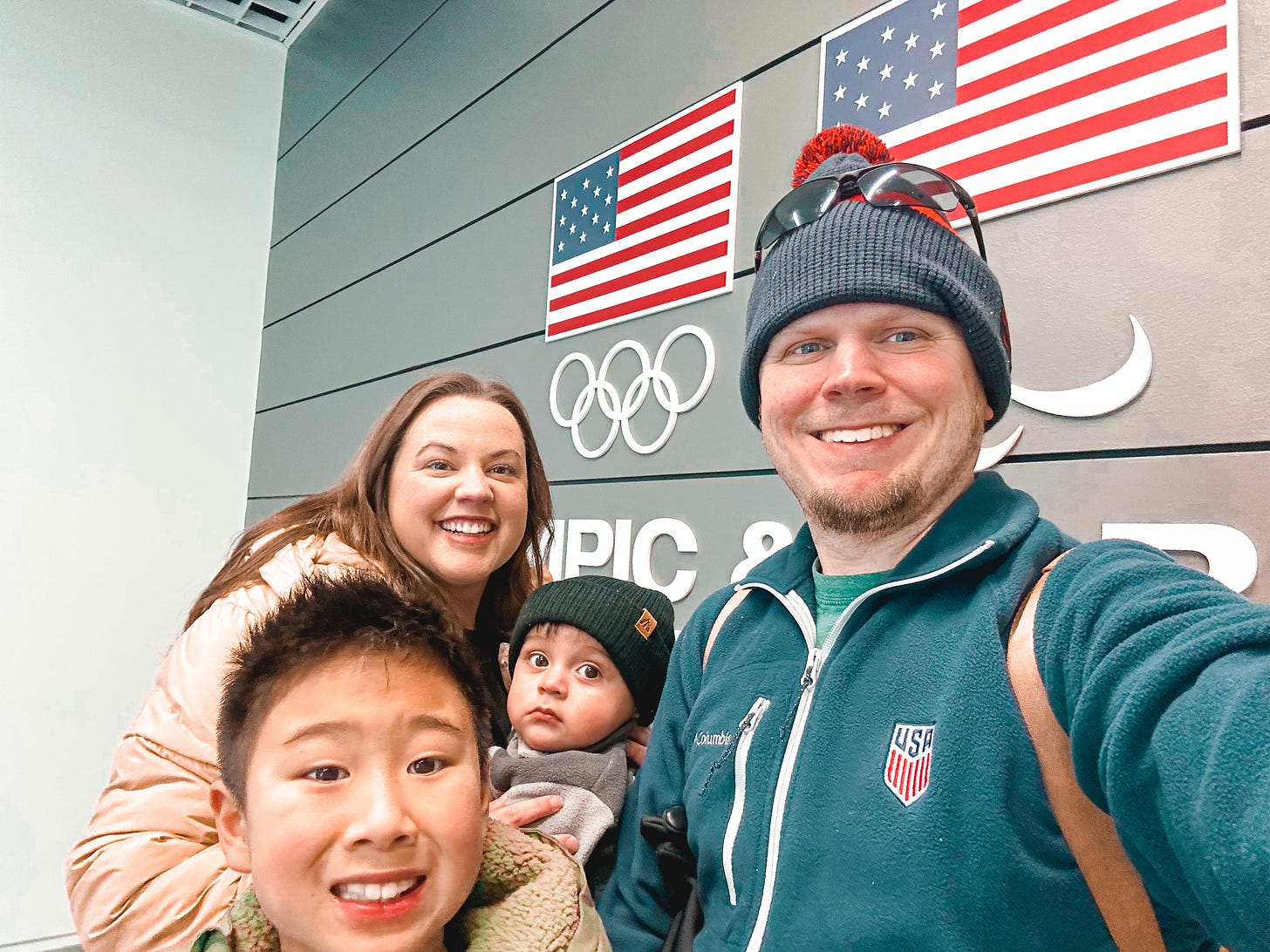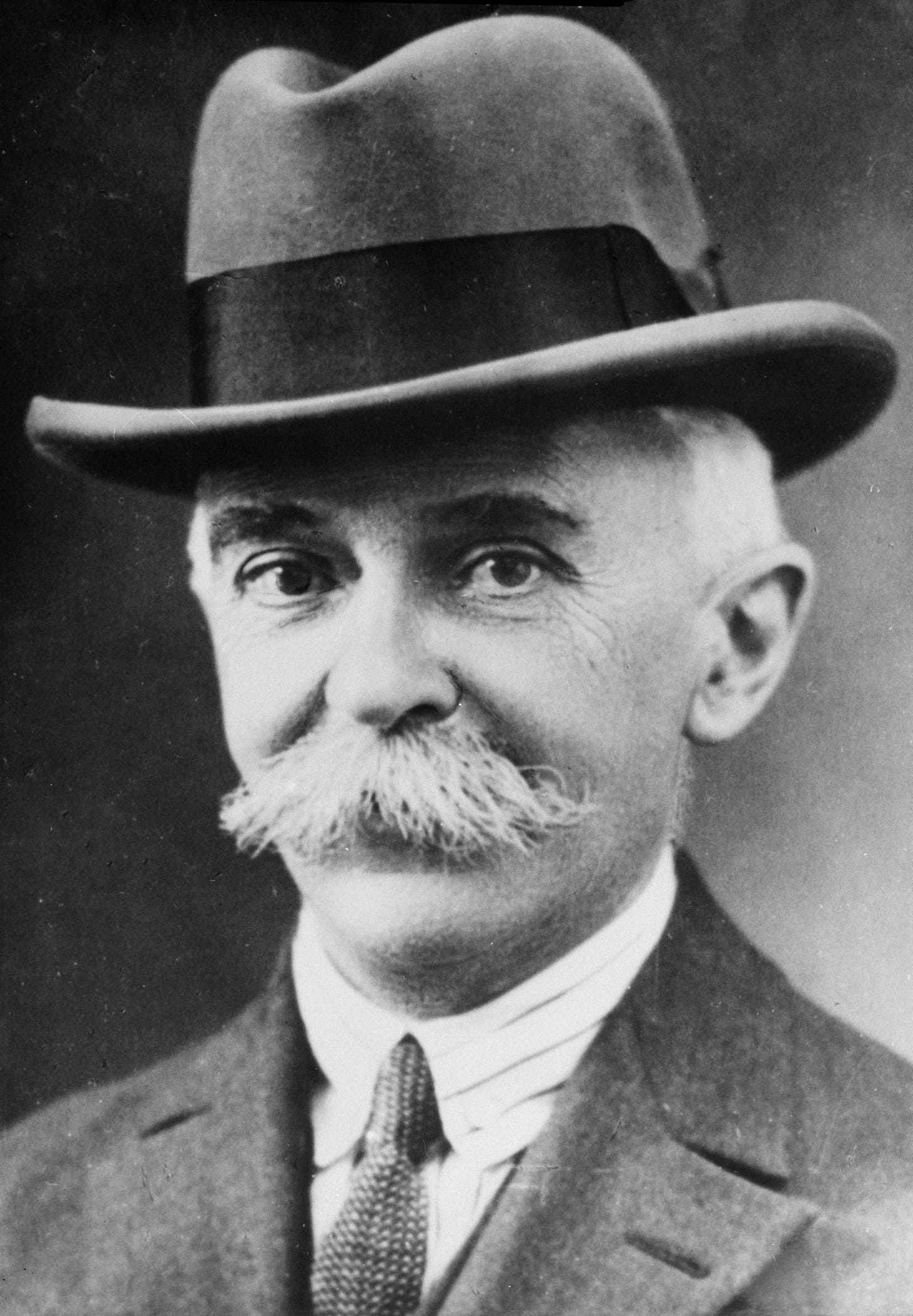That Time When Poodle Grooming Was Almost an Olympic Sport.
Storytelling lessons from the FIRST time the Olympics were in Paris.
TL;DR Version:
I love the Olympics. And Olympic history. And the first time the Olympic Games were in Paris in 1900? A total mess. But a few key storytelling lessons:
#1. Not everyone will “get” your Story. That’s alright. The people who do will carry the torch alongside you.
#2. Consistency with your Story matters. Don’t purposefully confuse people. Be known for one Big Idea.
#3. You don’t need an influencer for your Story to succeed. No one’s going to love your Story as much as you do, so don’t make your goals dependent on a specific person.
Regular Version:
I’m a certified Olympics & Paralympics junkie.
I remember watching the archer light the cauldron at the 1992 Barcelona Games, the Nancy Kerrigan/Tonya Harding drama leading up to the 1994 Lillehammer Games, and my love for the tradition was cemented with the 1996 Games in Atlanta, which was also the first time I ever heard anything about the Paralympics.
(Please make sure to support your nation’s Paralympians, too, guys. They’re such badasses.)
But the real reason people love the Olympics is because of storytelling.
For about a year, a friend and I did a podcast about the history of the Olympics, starting from the ancient games through the infamous 1936 Games in Berlin. Maybe one day we’ll pick it back up, but #life.
(If that sounds like it’s your speed, it’s called The Games Odyssey.)
So for today’s post, we’re going to look at 3 big lessons from the Olympic Games the first time they were in Paris, back in 1900.
Ready…?
#1. Not everyone is going to “get” your Story
Not everyone’s going to understand your vision—and that’s okay.
The first modern Olympics were held in Athens, Greece in 1896, but Baron Pierre de Coubertin (the “father of the modern Olympics” and epic mustache grower) saw it more like a great dress rehearsal.
For Coubertin, the 1900 Olympics in Paris was supposed to be the real deal. Paris was his hometown. It was the start of a new century. And the World’s Fair was happening in Paris at the same time. It seemed like kismet.
The only problem was that the World’s Fair organizers didn’t “get” the Olympics at all. The World’s Fair was intended to celebrate modernity and the future. And they viewed the Olympic Games as an ancient history lesson. So while they agreed to host Coubertin’s little “pet project” to avoid offending him, they literally went out of their way to call it anything but the Olympics because they saw it as a branding problem for the Fair.
And worse, they ended up completely changing the schedule of events, which really messed up plans for the athletes, some who dropped out when they discovered their event had been cut.
People who don’t understand what you’re building may try to change it—whether with good intentions or not. Don’t let them. Carry on.
When you find the people who align with your Story, magic happens. They’ll carry the torch alongside you.
#2. Consistency with your Story matters
When it comes to storytelling, you need consistency. You need running themes and a core message, even if the examples and stories you use change.
Simon Sinek is the “Why” guy. Brené Brown is all about compassionate leadership. No matter what they do, the core story never changes.
So remember how I said the 1900 World’s Fair organizers went out of their way to avoid calling the Olympics “the Olympics”? Here’s some of the names they used instead in the press:
“The International Championships”
“International Games”
“The Grand Pix of the Paris Exposition”
And my personal favorite:
“International Contest of Physical Exercise and Sport”
To this day, Olympic historians struggle to identify which sporting events at the Fair were Olympic events and which ones weren’t.
(“Do we count this poodle grooming contest or not?” Yes, that’s a real question the historians have had to ask and answer.)
The inconsistency didn’t end there. Prizes were all over the place. Some winners received medals. Some were given silver cups. One guy got a 50-lb bronze statue of a horse. (For swimming, naturally—not equestrian. True story.)
And the winner of the women’s golf tournament Margaret Abbott never even knew she was an Olympic champion—historians had to tell her descendants.
So … yeah. No one knew what the story was. And it tarnished the momentum the Olympics had generated in 1896. Momentum they wouldn’t get back until 1908.
(Because St. Louis 1904 was also a disaster. Another story for another day.)
Lesson? Don’t purposefully confuse people. Be known for one Big Idea and build your Story around it.
#3. You don’t need an influencer for your Story to succeed.
Many aspiring authors struggle with this. They think, “If I can just get [Big Influencer] to give me a blurb or post about my book, then I’ll make it.” Look, if you can get a big influencer to shout out your book, cool. Cherry on top.
But don’t let the success of your Story depend on it. If so, you’ll set yourself up for disappointment.
Baron Coubertin learned the hard way that you can’t ride someone else’s coattails to success. The World’s Fair organizers didn’t just “get” the Olympics … they also didn’t care. They were concerned with their thing—the World’s Fair—so can you blame them? (Maybe a little, but not a lot.)
Influencers are business builders, too. They got their own goals to worry about. So expecting them to care about your project as much as theirs isn’t just naive—it’s unfair.
It took the Olympics a little while to learn this because they made the same mistake in 1904 by pairing up the Games with the World’s Fair again. (Though the reasons were totally different. You can listen below to learn more.)
But history has proven Coubertin right. To this day, the Olympics remain the largest sporting event in the world while the World’s Fair has gone the way of the dinosaur. When the Olympics went back to Paris in 1924, it was Coubertin’s do-over because people finally “got” it. And he was in control of the Story.
If you’re still struggling to find consistency with your Story, then book a free 20-minute Q&A and let’s chat about it.
Until next time, keep moving for-word, keep telling your story.
Did this help you? If so, share this with someone you know via the handy little button below.
And if you want even more content like this, you can subscribe and view the additional paid content below!
Automate your savings (and help support this newsletter) by signing up for the Acorns app. Oh yeah, and get a $5 thank you gift from them when you do.





